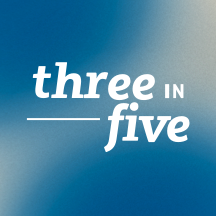Explore institutional insights

Client sign in
- Please enter a search term.
-
Insights
Stay up to date

Market update

Investor insights
-
Investments
Stay up to date

Market update

Investor insights
-
About us
Stay up to date
Learn more about our investment group

Market update

Investor insights
- Please enter a search term.
- Investments
-
Insights
- Back
- Insights
- Insights Overview
-
All insights
- Back
- All insights Overview
- Q3 2021: Investment grade private credit update
- Evaluating private credit opportunities in today’s market
- 2022 BentallGreenOak Perspective report
- The case for real estate
- The Impact of Rising Rates – LDI Client Update
- Global Investment Outlook 2022
- Investing in an inflationary environment
- Q2 2022: Investment grade private credit update
- Regulatory Update - Schedule D Part 1 (Bonds)
- Q3 2022 Investment Grade Private Credit Market Update
- Crescent Capital Markets Q3 2022 Update
- Multi-Asset Credit Strategy: October 2022 Update
- Investing into the rate-hiking cycle
- Multi-Asset Credit Strategy: November 2022 Update
- Multi-Asset Credit Strategy: December 2022 Update
- 2023 Global Investment Outlook
- Q4 2022: Investment Grade Private Credit update
- Multi-Asset Credit Strategy: January 2023 Update
- Fireside chat: Seize new opportunities in bonds and structured credit
- Q1 2023: Investment Grade Private Credit update
- Q1 2023: Crescent Capital group market commentary
- Crescent experts Q&A: How innovation will drive private debt forward
- June 2023: Private Credit Insights
- The BMA’s upcoming regulatory review
- The Elusive Recession - Commentary by Crescent Capital Markets
- 2023 Mid-year Global Investment Outlook
- Commercial mortgage-backed securities are in the spotlight again, but this isn't 2008
- Q2 2023: Investment Grade Private Credit update
- Cautious optimism
- Q3 2023: Investment Grade Private Credit update
- Narrowly syndicated credit: yield opportunities in an underexplored niche
- Don't rest yet, the recession will rear its head in 2024. Here's how to protect your bond portfolios
- 2024 Global Investment Outlook
- Q4 2023: Investment Grade Private Credit update
- Insurance solutions
- Retirement plan solutions
- Sustainable Investing
- Market updates
-
Three in Five Podcast
- Back
- Three in Five Podcast Overview
- Mark Attanasio on the changing landscape of private credit
- James Slotnick on the U.S. midterm elections
- James Slotnick on the 2022 U.S. midterm elections
- Andrew and John on commonalities in investment grade private credit and narrowly syndicated bank loans
- Laila on operational considerations for investment grade private credit investors
- Cliff Corso on opportunity in the high net worth market
- Kate McKeon on sustainable investing and Net Zero
- Ben Greene on education, allyship, and the trans experience
- Melissa on the importance of the client experience
- Cristina Medina on Invest in Girls
- Steve on the Canadian P&C insurance market
- Rich and Peter on growing stress in the banking sector
- Doug on the debt ceiling
- Jim Blakemore on real estate debt
- Chris and Tim on the Special Financial Assistance Program for Taft Hartley plans
- Veronique on the evolution of LDI investing in Canada
- Chris Wright on the future of private credit
- Beth Brown on workplace burnout
- D.J. on the CMBS market
- Josh Davis on inner mastery and effective leadership
- James Slotnick on the politics of raising the U.S. debt ceiling
- Kevin Quinlan on climate change as a material investment risk
- Steve Peacher on the 10-year anniversary of SLC Management
- David Hamlin on fundamental credit research
- Michael Schnitman on alternatives in the high net worth space
- Steve Peacher reflects on challenges and milestones in 2023
- Subscribe
- About us
- Careers
- Contact us
- Newsroom
- Thank you
- U.S. | EN

Welcome to SLC Management site for institutional investors
Before you proceed, please select your location
Episode 41
MARCH 9, 2022
Heather Wolfe on diversity, inclusion and bringing your authentic self to work
Heather Wolfe, Senior Managing Director and Head of Canadian Business Development at SLC Management, discusses the “Allies Acting for Change” program and how to make a meaningful difference for all employees across the firm.
Steve Peacher: Hello everybody, this is Steve Peacher, President of SLC Management thanks for dialing in. Today I’m really glad to be with Heather Wolfe, Heather is a senior managing director at SLC Management and head of our Canadian business development efforts. So, Heather I know you're very busy so thanks for taking a couple minutes.
Heather Wolfe (she/her): Oh, thanks for having me Steve, I’m happy to be here.
Steve Peacher: So, and in addition to her day job Heather agreed a couple of, maybe a year and a half ago to head an organization that we want to start the week now call “Allies Acting for Change.” And that's what we want to talk about today so Heather, can you tell us what Allies Acting for Change is and why was it something that you were willing to get involved in when we first talked about it?
Heather Wolfe (she/her): I sure can, I could talk about this for hours. So, Allies Acting for Change is SLC Management's DE&I committee. It's a group of employees from our business and we make recommendations to our senior leadership team about actions to take to improve DE&I at SLC. We lead some of these initiatives from our group, and sometimes other groups like HR lead the initiatives. When I think about why I got involved, as you mentioned, you, you asked me about this about a year and a half ago there were there were two main reasons for me. Passion and the possibility for positive change. So, if I take passion first, DE&I is something that I feel passionate about and that passion, like most of us, it comes from my own experience. So as an actuary where I was a woman in a field of men, I saw junior women and people from different backgrounds joining the field and feeling defined by their technical skills only and being afraid to try new things. And also, as an investment professional where I’m often the only woman in the room, so I spent a large part of my career feeling like I needed to hide some of the things about me, particularly anything to do with emotions. And I really feel a passion to help people who felt like I did to feel more comfortable, more confident being themselves so that's the passion piece. On the possibility of positive change piece, I think I feel like this is something that I can help improve, it's a hot topic in the world today so there's lots of momentum for change, it's a key priority for SLC Management as a business as we grow, we build our firm and our culture. And we know that having a more diverse group helps everyone, it helps our employees helps our clients and it helps our business overall. So, I feel like I bring a diverse viewpoint, and I can help drive positive change and real results, particularly in this traditionally all male world of investments. So, passion and the possibility of positive change, Steve.
Steve Peacher: Allies Acting for Change in the last year and a half has done a lot, you've engaged a lot of people. You know you've done a number of different things, if you look back on what's been done so far, and maybe also just drawing on your own personal experiences as you were talking about, what is the biggest I’ll call a DE&I learning so far that you've had either from the committee or from again your own personal experience?
Heather Wolfe (she/her): It's hard to separate the committee and my own personal experience, as you point out because they all kind of mesh together, we're all learning together and reading and talking to people and it's been a great experience. So, I think, for me the big learning is that an inclusive culture is at the heart of everything and what's so surprising to me is that it's not about big gestures. I’ve learned that inclusion happens one person and one interaction at a time. It's all about the small connections, we make every day, to listen, to share an experience, to work on a project together or even just chat with someone casually over coffee. And I think what we know is inclusion empowers people, helps them believe in themselves, helps them speak up more and take action. And that helps us as a firm build a more inclusive culture which then attracts more people from diverse backgrounds. In fact, I don't I don't believe we can become more diverse without first being more inclusive. So big learning for me is inclusions at the heart of everything and it happens one small interaction at a time. And then when I think about myself and those of us in leadership roles, I’d say those of us with privilege, especially white privilege, can make a huge impact on inclusion. It's all about taking the time to make connections with people who are different from us. But that's my big learning that I’ve taken, and it resonates with me as a person who likes making connections and feels that the connections, I have with the people I work with make a huge difference to how I feel.
Steve Peacher: Well, it's interesting, you know as an organization you want to have big initiatives in this area, but then your comment which I which resonates with me is this is really built one interaction at a time. So big initiatives are great, but then it's this one-on-one interaction that spreads so with that as context, if you given your views, given what you hear from our from your colleagues at Allies Acting for Change, if you had to say that what the one thing is that we could do as an organization or maybe individually to really do a better job to improve diversity and inclusion across our organization, is there one thing that stands out to you that maybe recommendation to me, but what is that?
Heather Wolfe (she/her): Yeah, in public to know less Steve. It's a tough question to answer because there's so many things that I want us to do, and my brain goes to two places. I want people to speak up more when they see something that makes them uncomfortable, but I think that's a common answer. I think I’d like to go with something that I think is a less common answer and it's maybe harder to do. I want every person to show their vulnerability to others, even if they don't know them that well. It makes it okay to be human and I think it's especially important for anyone who's a leader. If we set the example that it's okay, not to be perfect, it's okay to have a life that's messy, you know emotions at work, you know things going on that we're trying to juggle and not you know not always doing it perfectly. I think that opens the door for people to feel comfortable being themselves, with all their imperfections and I think that's what we want, we want to feel like we're getting the value of all the diverse people that we have to bring their whole selves to work and to bring all their creativity and all their ideas and we can only do that if we truly feel we can show up as ourselves. So, I think I would say it's about being brave and choosing authenticity and all those gifts of our own imperfections’ -vulnerability, courage, empathy. So, I would encourage all of our leaders to be vulnerable with the people that you're having these connections with, share a challenge, share an experience, share a struggle, and make it okay, not to be perfect.
Steve Peacher: Well, I think what you're talking about is you know those are that's as a cultural aspect of an organization.
Heather Wolfe (she/her): For sure.
Steve Peacher: You know you can't just have an initiative to say, well we're going to change our culture, it has to happen bottom up and so, but if you can achieve that kind of culture, creates a stronger organization and you know the diversity just in thought and then that and people thinking is part of a company that as part of a group that they have stronger by about binds I guess if they can be honest with each other. Final question somewhat related actually to this, one of the things that you've been involved in as part of this effort is to, and you know our organization like other organizations, is hopefully about to kind of re-engage at the office level, that's where things seem to be going in an uncertain environment related to pandemic. And you've been involved in a lot of feedback sessions, engagement sessions with our employee base in terms of people's attitudes around that and how they want to come back to work, and I think every organization’s wrestling with this. And I know you have strong feelings about it personally. What are some of the things, if you had to summarize some of the big messages that you feel like characterize the are the viewpoints within our organization, as people are thinking about going from the new normal, which is being more work from home virtual etc., maybe back to a changed environment but maybe not the way we used to be. What are some things that you've taken away from those engagement sessions and listening sessions?
Heather Wolfe (she/her): It's been such an interesting experience, because so much has changed for all of us. It's been to two years, coming up to two years now that we've all been working differently, and so I think when I talk to people, and when I think about my own experience there's a much greater need for flexibility. People have some fear about whether they can come back to work and feel okay and take care of their home responsibilities. We talked about the silver linings of covid, so many of us felt that the opportunity to work from home full time, while difficult on many fronts, brought us closer to our families, allowed us to build new exercise routines, do more home cooking. I know that for me I have a morning exercise routine that I do three mornings a week in my basement gym that I wasn't able to do when I was commuting into the office. I see my kids more, they pop in at you know, 3:05 every day so anybody who's on a call with me at three o'clock will see my kids come in, give me a hug, say hello. I have a cat who's a frequent visitor on Zoom calls that's well known now. So, I think there's some fear that we won't be able to preserve those life and family benefits that came from covid. But there's also excitement about the idea that we can leave our homes, we don't have to feel anxious, we can meet people, we can build new relationships. We can go have coffee with people or lunch or a drink or whatever, I think there's a lot of excitement so it's that combination of fear and excitement. And people want flexibility and I think the final thing I would say about this Steve, is I think there's a real worry about the hybrid model and while it seems to be the answer, some days in the office some days at home, there's worry that there will be a haves and have nots culture if you're the people who are in the office more, you will have more opportunities, you will be viewed better. If you're the person that's at home, more for whatever reason, you know, we might forget that you can still work just as hard be just as productive and still build and deepen relationships from home. I think it's going to be a bit of test and learn we've talked about that a lot as a group, how do we test it out, get feedback, learn pivot. And I think I think we're going to do well there.
Steve Peacher: Well, I agree, I think all organizations are going to be an iterative learning mode now for months as they kind of see how people react to a new environment, what works and what doesn't work. So, listen Heather thanks a lot for that, really interesting, thanks for taking the time and thanks to everybody who listened to this episode of “Three in Five.”
Heather Wolfe (she/her): Thanks Steve.
This podcast is intended for institutional investors. The information in this podcast is not intended to provide specific financial, tax, investment, insurance, legal or accounting advice and should not be relied upon and does not constitute a specific offer to buy and/or sell securities, insurance or investment services. Investors should consult with their professional advisors before acting upon any information contained in this podcast. This podcast may present materials or statements which reflect expectations or forecasts of future events. Such forward-looking statements are speculative in nature and may be subject to risks, uncertainties and assumptions and actual results which could differ significantly from the statements. As such, do not place undue reliance upon such forward-looking statements. All opinions and commentary are subject to change without notice and are provided in good faith without legal responsibility.



